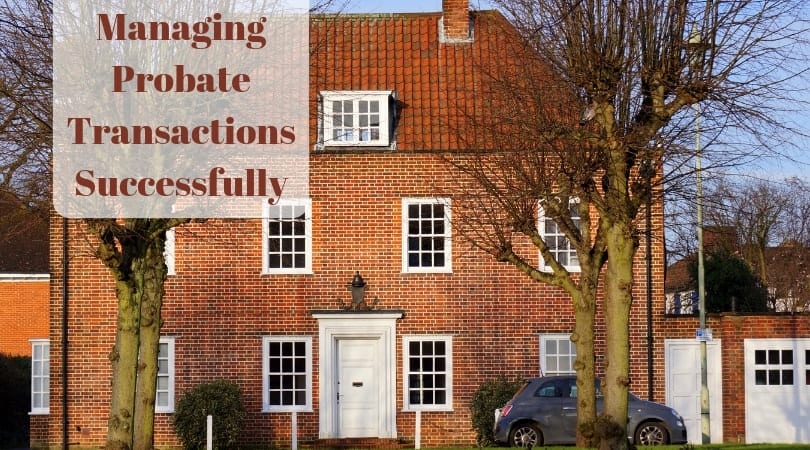Probate transactions carry with them a special responsibility to conduct thoughtfully and diligently. Both the families and professionals involved in the probate process deserve respect and genuine care.
Here we’ll talk about some of the things to think about in handling probate cases for real estate professionals and others involved in the process.
New rules have recently made it simpler to file for probate in Massachusetts and reach the resolution needed.
When do I need to file Probate? What’s the time frame?
When someone passes away intestate, meaning without a will, the government steps in to determine how assets will be distributed. When the deceased person leaves a will that specifies beneficiaries, then no probate is typically necessary, unless the validity of the will is in question.
If the decedent (deceased) had a surviving spouse or a joint tenancy was in place, the property will automatically pass to the surviving party, and no probate will be necessary. For the majority of cases, probate must be filed within 3 years of the decedent’s passing.
The process usually takes around 12 months. Please speak to an attorney at this point to discuss the specific filing requirements and the associated time frame for each step. The process can vary among localities, so be sure to speak with local professionals, as well as local officials before making any decisions.
Get in Touch with all the Heirs and Coordinate Parties
Once you’ve conferred with appropriate council, it’s time to get organized. Utilize your favorite project management tool to outline and track all the tasks. Also take the time to identify all the parties and professionals that will be involved in the proceeding. Whether you’re the executor, an heir, or an associated professional, it’s within your purview to take charge, organize, and ensure that everyone and everything is coordinated throughout the process.
If there are likely to be multiple heirs, start the process of contacting them and gathering information as early in the process as possible. Due to the emotional nature of the situation, it can sometimes take parties a little extra time to respond and be willing to move forward with the process.
Court Process – Appointment of Executor
After the case is opened and the process is underway, an executor or personal representative will be appointed by the court based on the direction of the will and presence of heirs, or the lack thereof, in which case an interest third-party may serve. Where there’s no will and a spouse survives, they receive first priority to be appointed as executor.
The court will review the details of the case and determine how to distribute assets to satisfy debts and taxes, and the rights of heirs. The executor will then carry out the directions of the will and instructions of the court, including the sale of any assets, including real property needed to satisfy the will and court.
Property Valuation
If the process indicates that real estate must be sold, it will likely need to be sold at fair market value. Factors affecting value include functional and economic obsolescence, location, condition, and conformity with surrounding properties. The best way to avoid complications and disputes regarding the value of the property and the best listing price is to order a comprehensive real estate appraisal to provide a credible and objective opinion of value.
Despite needed upgrades or repairs, the property may be worth more than anticipated. Don’t accept the first offer from investors. Take the time and invest in a qualified appraisal (or encourage your clients) that will lend certainty and impartiality to your decision in selling the property or accepting an offer. Please click here to place a prompt order.




